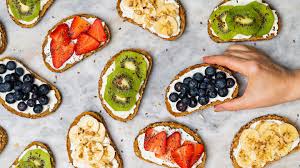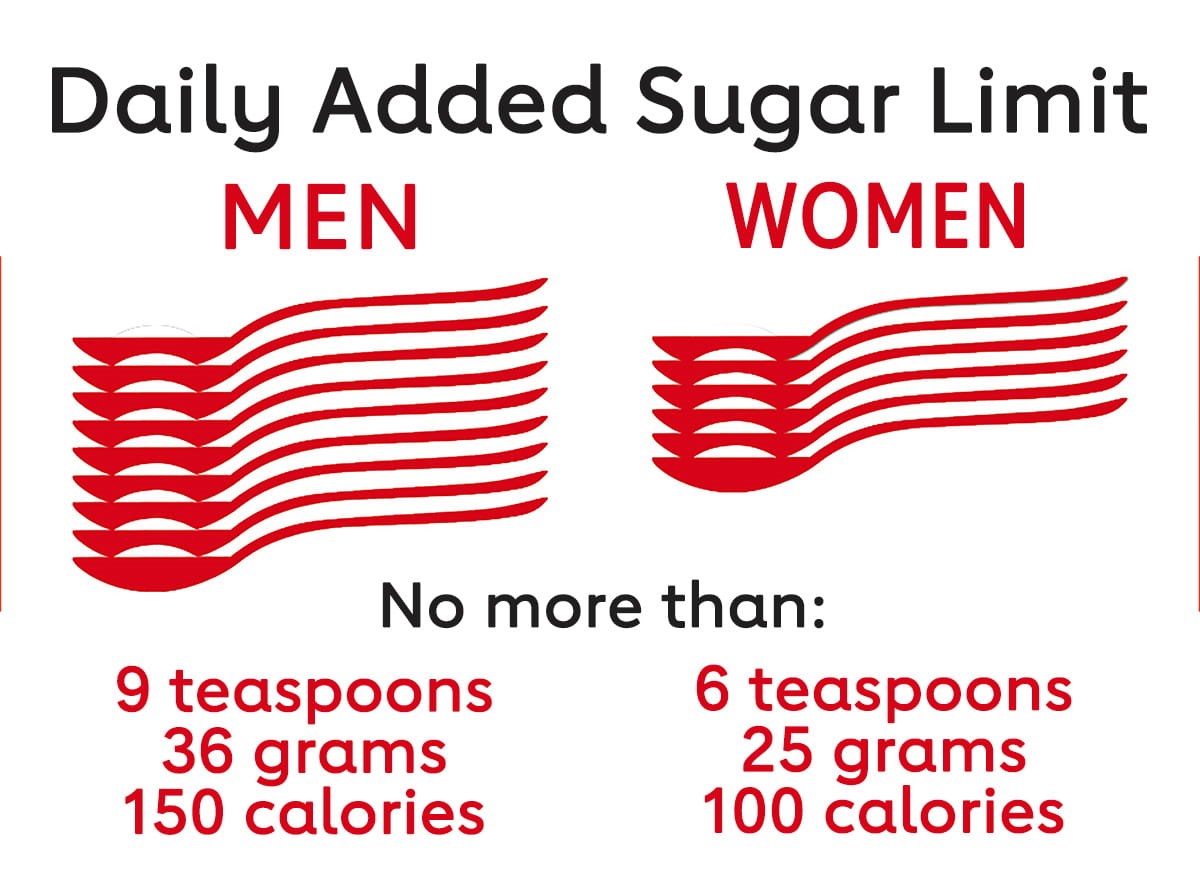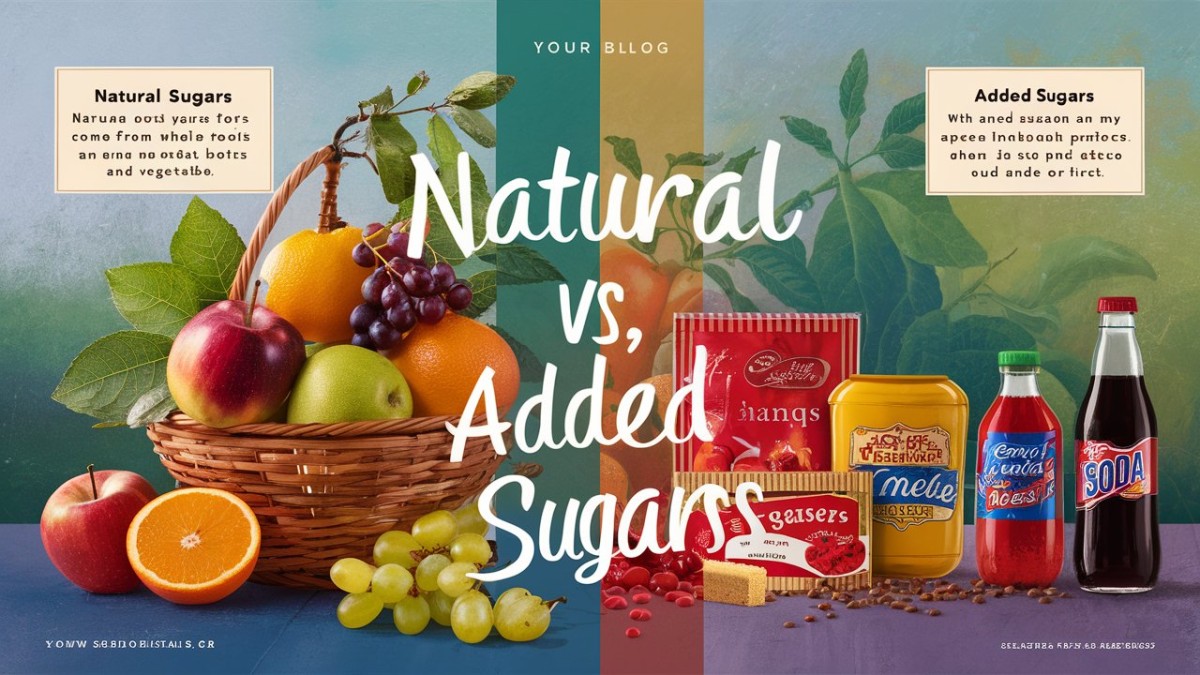Is there sugar in this? In this! Have you ever seen a person enquiring regarding the sugar content?
But, why? This is because they're trying to stay away from these added or refined sugars.
Do you have any idea regarding the difference between these natural and added sugars?
Why is it advised to lessen the usage of these added and refined sugars?
Well, all of these questions will be answered further in this blog along with a detailed comparison between natural and added sugars. Sugar is a common ingredient in many foods and beverages, but not all sugars are created equal. Understanding the difference between natural and added sugars is crucial for making informed dietary choices that impact your overall health.
What Are Natural Sugars?
 Understanding natural sugars is quite simple because natural sugars are those found in our fresh and healthy fruits, vegetables, and dairy products. But what do these natural sugars contain, they contain fructose in fruits and lactose in dairy along with all essential nutrients in the form of vitamins, minerals, and fiber. According to the American Heart Association (AHA), naturally occurring sugars in whole foods are generally considered to be beneficial due to the presence of accompanying nutrients that contribute to overall health and well-being.
Understanding natural sugars is quite simple because natural sugars are those found in our fresh and healthy fruits, vegetables, and dairy products. But what do these natural sugars contain, they contain fructose in fruits and lactose in dairy along with all essential nutrients in the form of vitamins, minerals, and fiber. According to the American Heart Association (AHA), naturally occurring sugars in whole foods are generally considered to be beneficial due to the presence of accompanying nutrients that contribute to overall health and well-being.
Examples of Natural Sugars:
After going through the definition you can have an idea about the examples of these natural sugars. Here is the list of foods having natural sugar content:
Fruits: Apples, bananas, and berries contain fructose, which is a natural sugar that also provides you with a good amount of fiber, vitamins, and antioxidants.
Vegetables: Next coming to vegetables carrots and beets contain natural sugars and are also rich in fiber and vitamins.
Dairy Products: And then in dairy products milk contains lactose, a natural sugar, which provides calcium and protein for enhancing your overall health.
The fiber present in fruits and vegetables is known to help slow the absorption of sugar into the blood, preventing spikes in blood glucose levels. This slow absorption can help in your blood sugar control compared to refined sugars.
What Are Added Sugars?
 Now, entering into the world of added sugars, are those that are incorporated into foods during processing or preparation. Where are these sugars found? These sugars are often found in sweets, soft drinks, and processed foods. They include a variety of forms, such as sucrose (table sugar), high-fructose corn syrup (HFCS), and honey. These added sugars offer no nutritional value but are high in calories and can lead to various health issues.
Now, entering into the world of added sugars, are those that are incorporated into foods during processing or preparation. Where are these sugars found? These sugars are often found in sweets, soft drinks, and processed foods. They include a variety of forms, such as sucrose (table sugar), high-fructose corn syrup (HFCS), and honey. These added sugars offer no nutritional value but are high in calories and can lead to various health issues.
Examples of Added Sugars:
Sucrose: Common table sugar used in baking and cooking.
High-Fructose Corn Syrup: It is often found in sodas and processed foods.
Honey and Syrups: While they are natural substances when added to foods, they act as added sugars.
According to research, excessive consumption of added sugars can lead to several health problems, such as obesity, type 2 diabetes, and cardiovascular diseases.
Natural vs. Added Sugars
Aspect |
Natural Sugars |
Added Sugars |
|
Source |
Found in whole foods like fruits, vegetables, and dairy |
Added during food processing or preparation |
|
Types |
Fructose, lactose |
Sucrose, high-fructose corn syrup, honey |
|
Nutritional Content |
Contains vitamins, minerals, and fiber |
Provides empty calories without essential nutrients |
|
Impact on Blood Sugar |
Slower absorption due to fiber; stabilizes blood sugar |
Rapid absorption; causes spikes in blood sugar and insulin |
|
Health Effects |
Generally beneficial; supports overall health |
Linked to weight gain, diabetes, and heart disease |
|
Recommended Intake |
No specific limit; part of a balanced diet |
Limited intake recommended to avoid health risks |
|
Examples |
Apples, carrots, milk |
Soft drinks, sweets, processed snacks |
|
Metabolic Effects |
Often positive; includes dietary fiber |
This can lead to obesity and other metabolic issues |
Nutritional Differences and Health Implications
 ❖One key difference between natural and added sugars lies in their nutritional profiles. Natural sugars provide you with plenty of nutrients that benefit your health, such as fiber, vitamins, and minerals. This is because the nutrient-dense profiles of fruits and vegetables support you with your bodily functions such as the digestive process and overall well-being.
❖One key difference between natural and added sugars lies in their nutritional profiles. Natural sugars provide you with plenty of nutrients that benefit your health, such as fiber, vitamins, and minerals. This is because the nutrient-dense profiles of fruits and vegetables support you with your bodily functions such as the digestive process and overall well-being.
❖Now coming to added sugars they contribute to empty calories, which means they provide energy without essential nutrients. This can lead to problems such as weight gain and nutritional deficiencies if consumed in excess. As per research by the American Heart Association high intake of added sugars is linked to an increased risk of heart disease and other chronic diseases.
Impact on Metabolism
When you have natural sugars they are in the form of whole foods that are rich in fiber, this fiber content slows down sugar absorption and helps you to maintain stable blood sugar levels. Where in the case of added sugars they get absorbed rapidly causing spikes in your blood sugar and insulin levels which can further lead to insulin resistance and metabolic syndrome.
Public Health Recommendations
 This caution is to be noted to keep yourself healthy as recommended by the American Heart Association women should not consume more than 100 calories which is about 6 tablespoons and men should not go for more than 150 calories per day which is for about 9 tablespoons.
This caution is to be noted to keep yourself healthy as recommended by the American Heart Association women should not consume more than 100 calories which is about 6 tablespoons and men should not go for more than 150 calories per day which is for about 9 tablespoons.
Having sugar as per these guidelines can help you to keep yourself far from the chronic diseases associated with higher sugar intake.
Conclusion
Concluding with the natural vs added sugars they both can contribute to your overall sugar intake but the difference is that natural sugars are found in whole foods enriched with essential nutrients but the added sugars are found in unhealthy processed foods which can lead to severe health complications if consumed in excess. So be informed of your choices to keep yourself healthy and strong.

